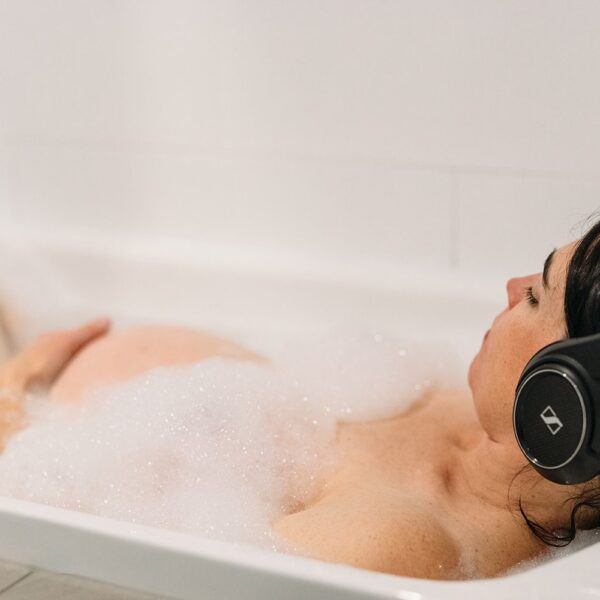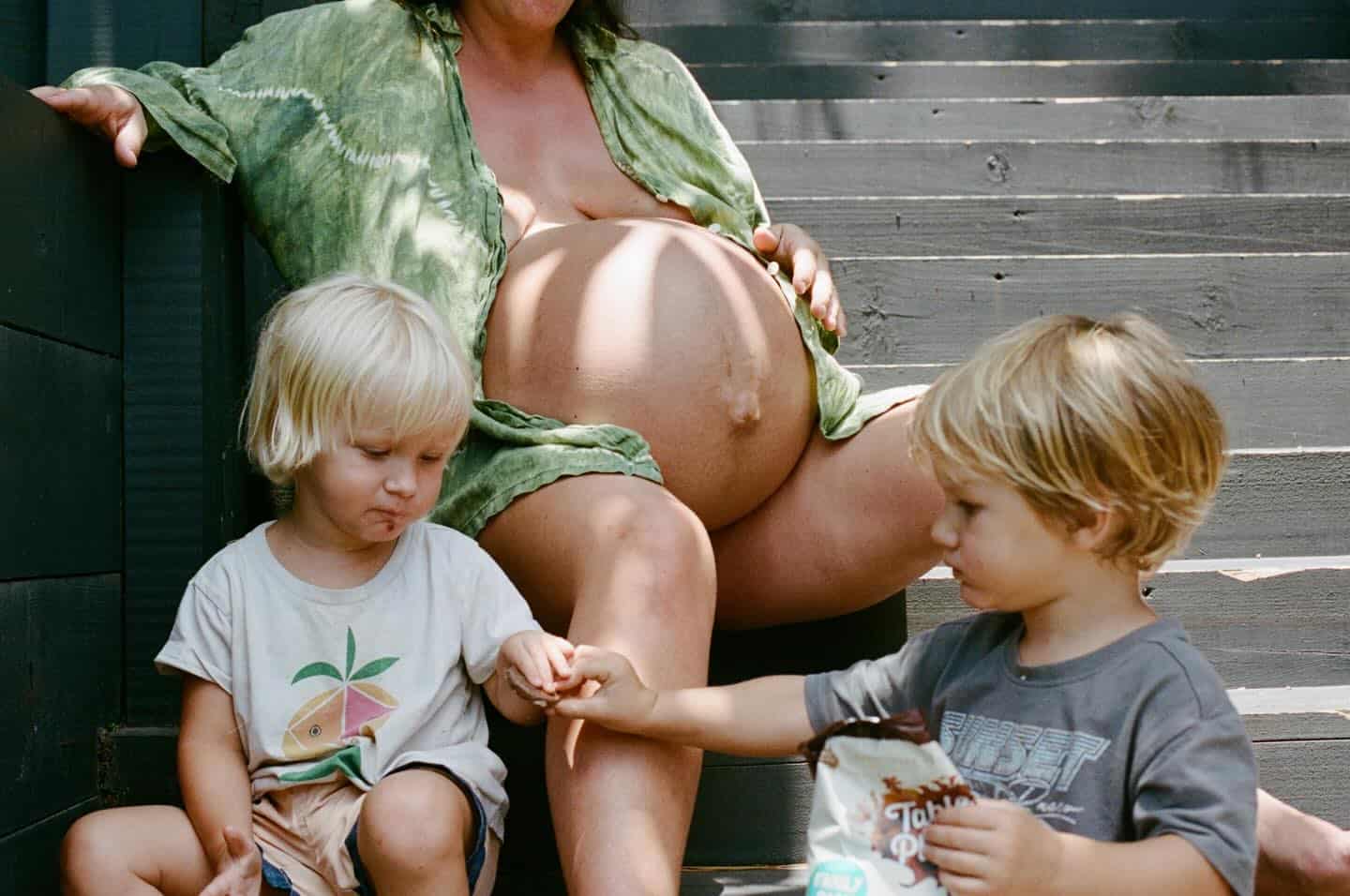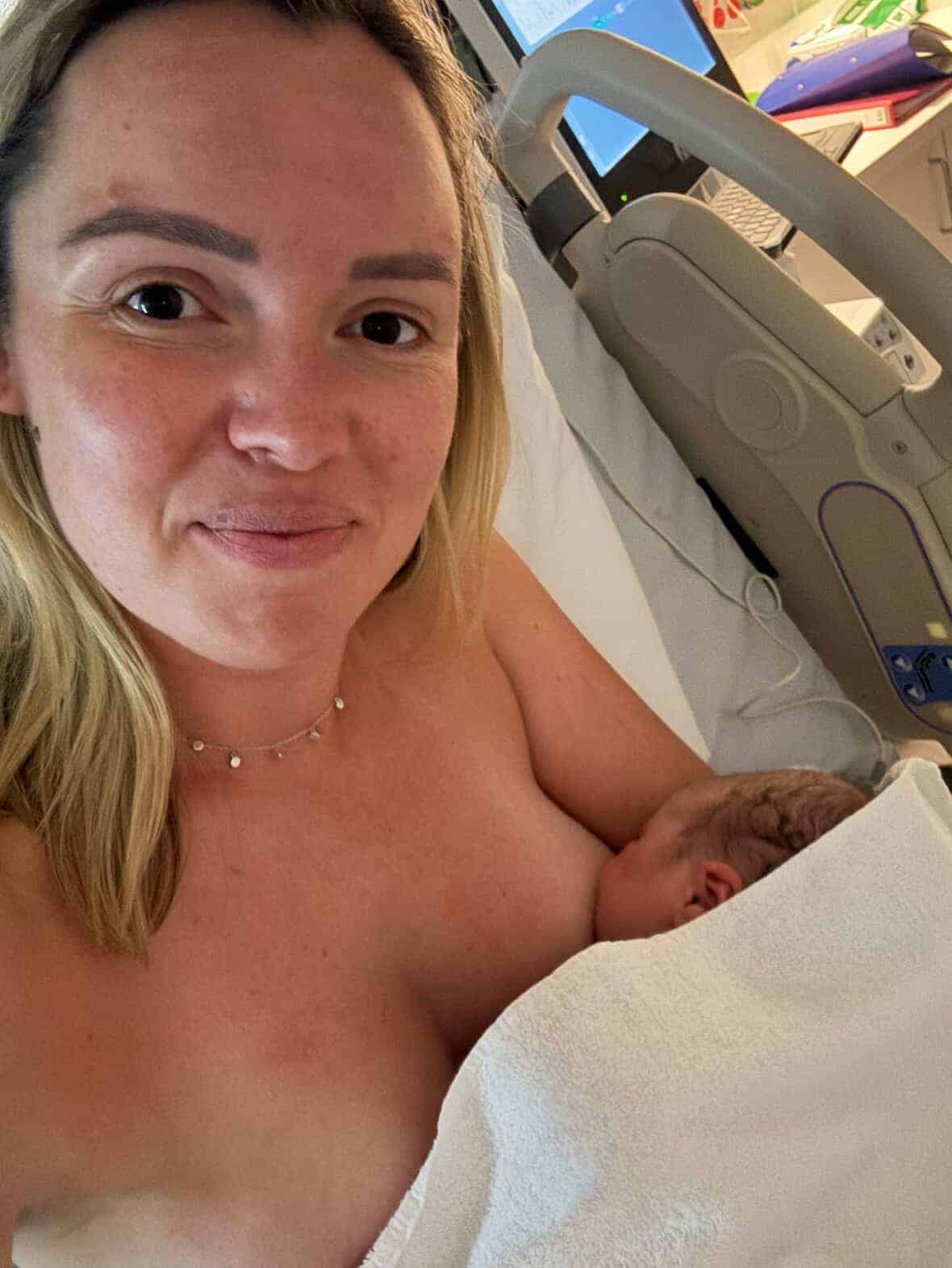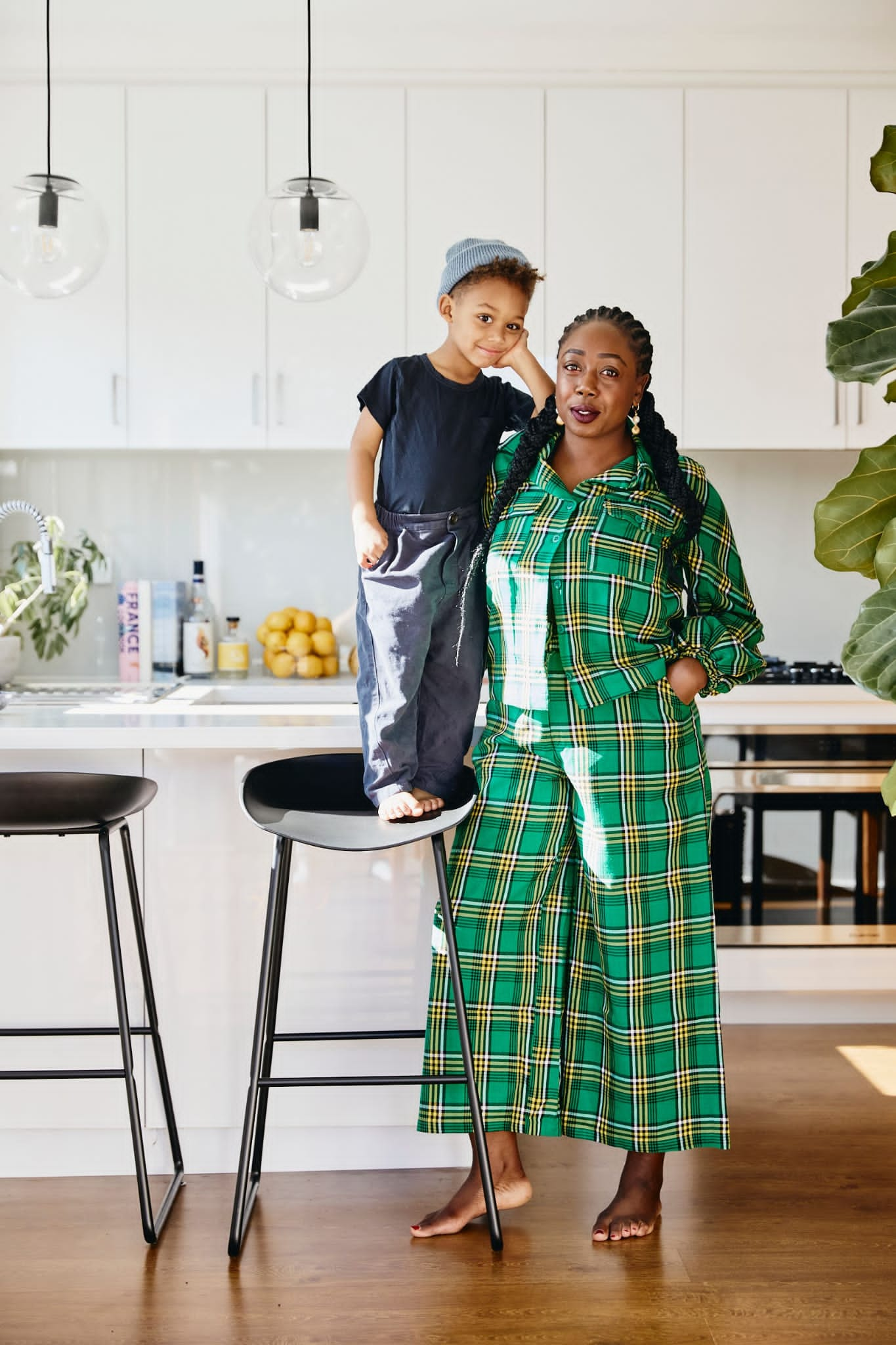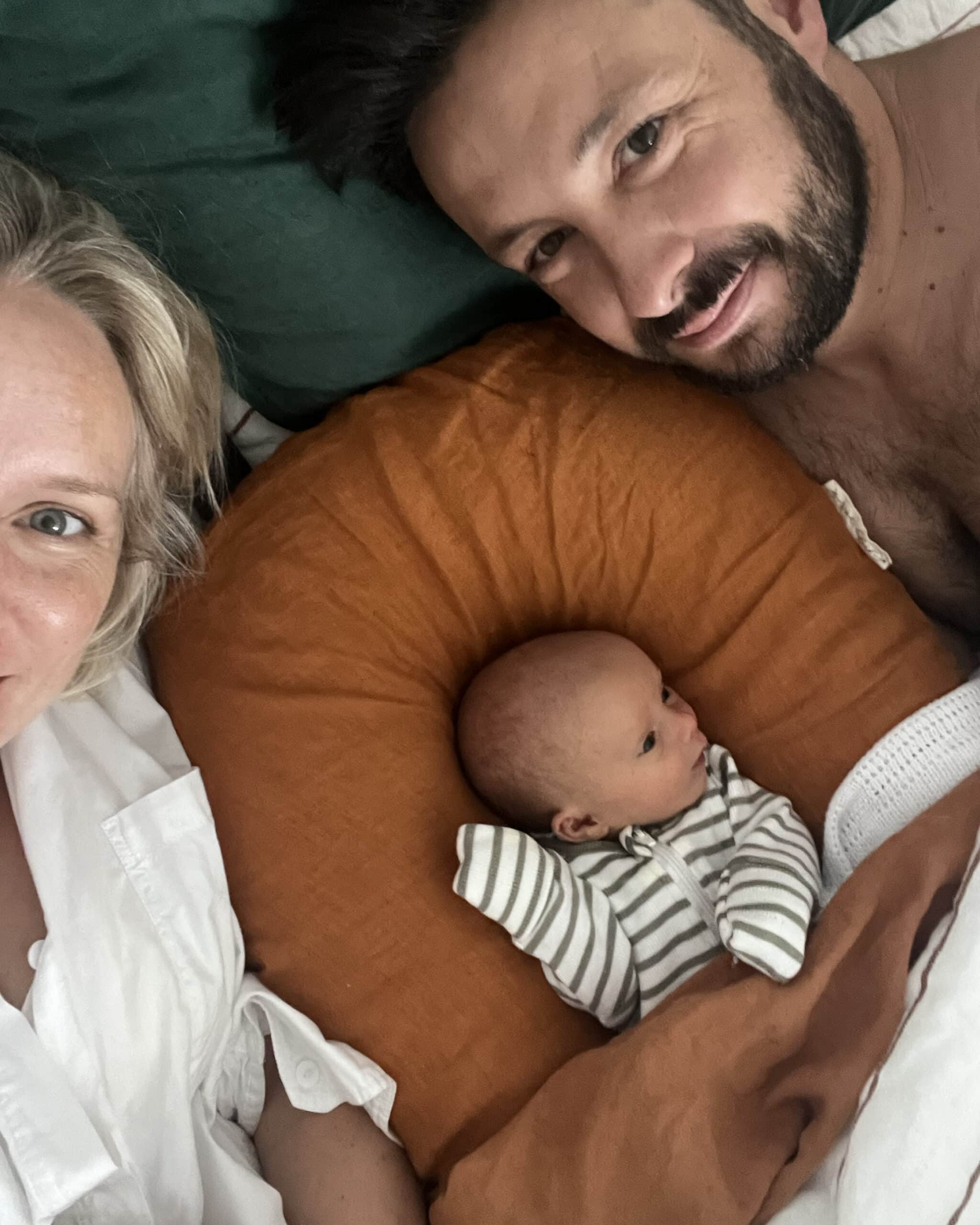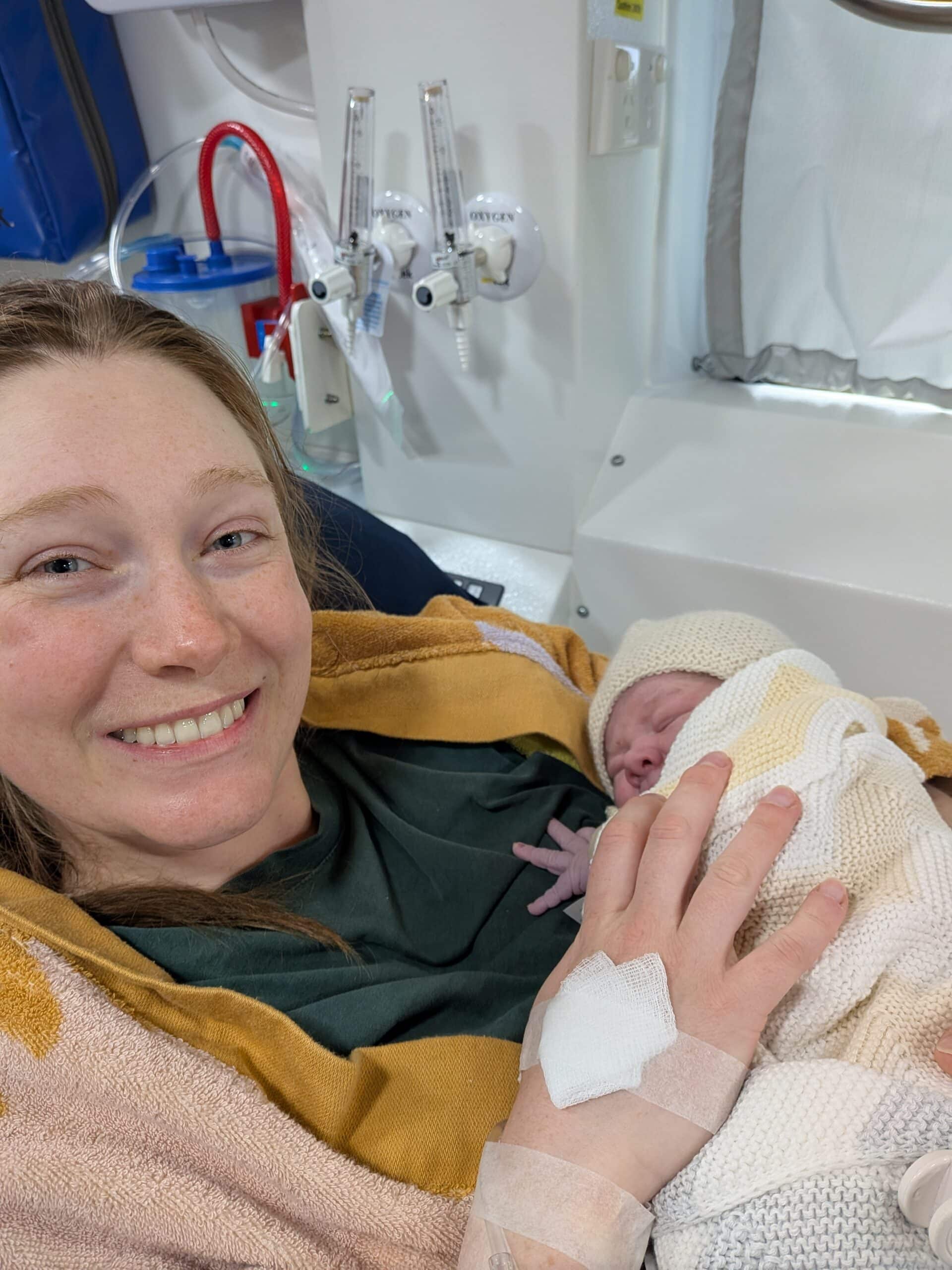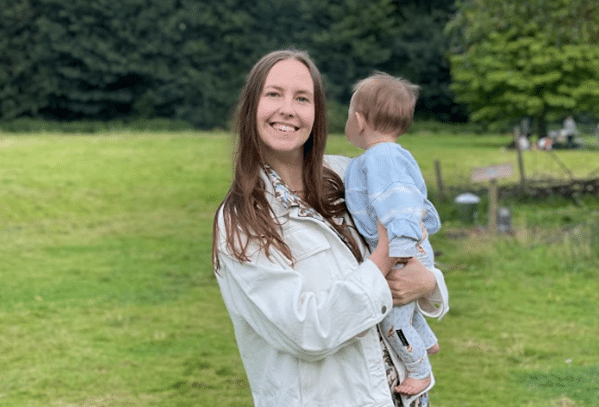Podcasts Bonnie
EPISODE 171
Bonnie
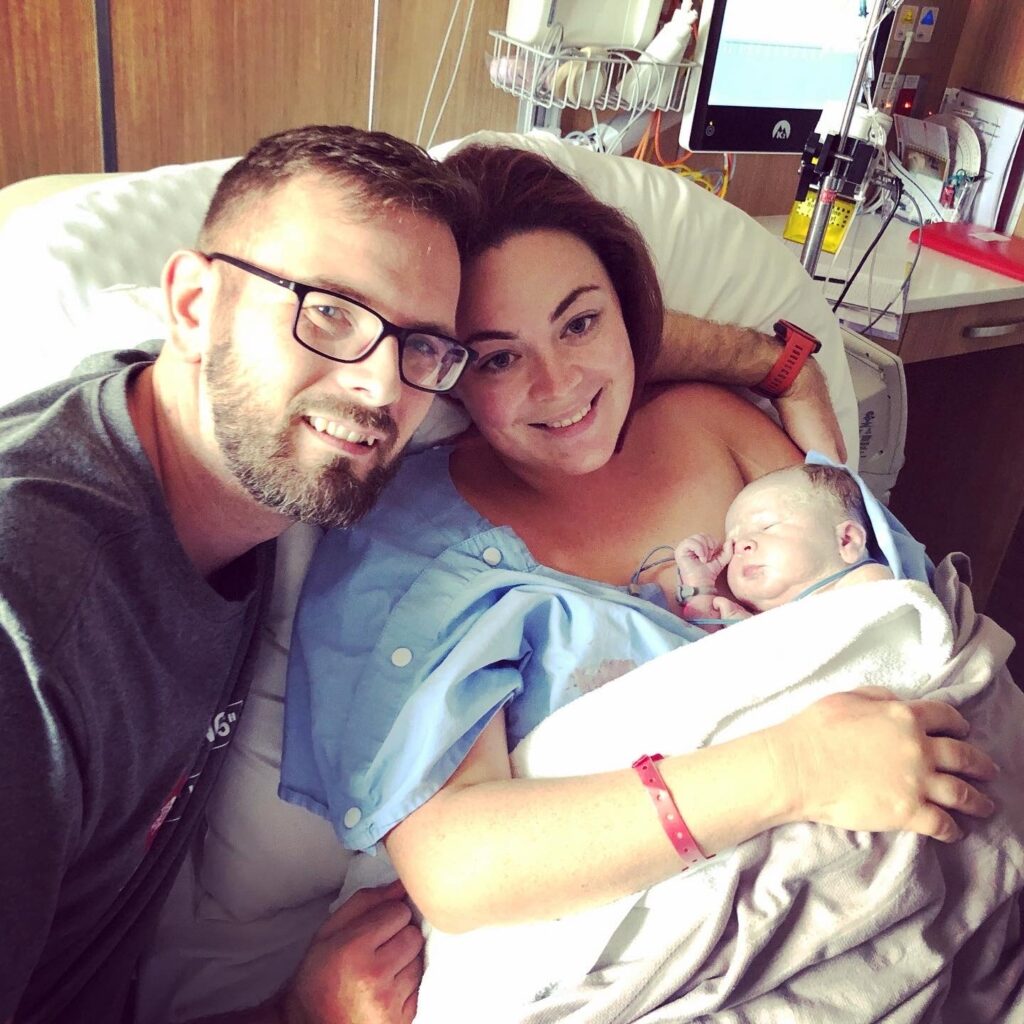
Bonnie’s story is essential listening for us all and a potent reminder that mental health and wellbeing is an integral part of pregnancy, birth and motherhood. Now, more than ever, we must bolster our online community of mothers with support, empathy and kindness because in this age of coronavirus, with limited antenatal and postpartum support, we’re all a little more vulnerable. If you or someone you know needs help, please reach out to the following organisations:
PANDA – 1300 726 306. Lifeline – 13 11 14 Pregnancy, Birth, Baby helpline – 1800 882 436
You can hear the story of Bonnie’s first pregnancy and birth, with baby Everest, in episode #64. Bonnie planned to start trying for a baby when Everest was one. She fell pregnant on her first attempt but unfortunately she had a very, very early miscarriage which is often referred to as a chemical pregnancy. Despite only being pregnant for three days, Bonnie was very aware of the change in her body and her mindset and she felt the distinct symptoms of antenatal depression creeping in. However, as soon as the pregnancy hormones left her body, so too did the depression.
She fell pregnant again on her next cycle and went straight to her GP to get a referral for a dating scan. At 7 weeks she had a bleed and attended the early assessment unit at her local hospital where they scanned her and noted that she was six weeks pregnant. “While there was a heartbeat I was also very sure of my dates and I was certain I was 7 weeks pregnant. Alarm bells should have been ringing for me at this stage but I carried on as usual and experienced the normal tiredness and nausea of the first trimester.” The only thing that would relieve the nausea was an ocean swim and at 10 weeks she went swimming, felt incredibly well and continued to feel well when she got out of the water. “I felt so good, mentally and physically, that I knew something was wrong. I went for a scan a few days later and told the sonographer that I was prepared for no heartbeat and sure enough, there wasn’t one. The baby had died at 8 weeks,” she says.
“It was really hard, surprisingly so. I feel in some ways that we don’t know how to grieve a miscarriage; in some ways this baby is just a story or a possibility or a potential. But on the flip side you’ve grown this baby, been so happy about it and connected with it. I felt so confused when I found out that my baby had died. Was I allowed to be upset? How sad am I allowed to get? It was really confusing.”
She had a D&C a few days later and spent the next few weeks openly grieving about her loss. Together with her husband, Lee, she decided to take a few months off before they tried again and during that time she focused on her health and dove into fertility podcasts and websites. She admits that because she’s studying midwifery, her experiences have only broadened her understanding and helped her find meaning in her suffering.
The next time she tried to fall, she fell pregnant with baby Clover. After her challenging and debilitating first pregnancy, she really hoped that she would be able to enjoy the experience yet when she was couch-bound with nausea and exhaustion, she started to grieve the pregnancy joy she would never have.
“I’ve grieved the fact that I haven’t had a pregnancy that I could enjoy. It’s just the way my body responds to pregnancy hormones and I’ve made the decision that we can’t have anymore. I can’t put my family through it, and I don’t know if I can survive it. She’s 11 days old now and I’m grieving that this is the last time I’ll have this experience, this newborn stage.”
She admits that she spent most of her pregnancy waiting for something to go wrong. In the first 20 weeks she was completely overwhelmed by the simplest of tasks, even getting her toddler a drink was too much for her to cope with. She was taking medication that would give her a 45minute window to be productive – get out of bed, have a shower – but once it wore off she would be back on the couch. Nausea, exhaustion and declining mental health was a combination that rendered her useless to do almost anything.
At around 20 weeks her nausea subsided and she was well enough to do one of her midwifery placements which she loved. However, she noticed that when she wasn’t on placement or, she was struggling to be grateful or relieved that she’d made it halfway through the pregnancy. Once her placement finished, she was hit with overwhelming exhaustion, the likes of which she’d never experienced before.
“I’d wake up in the morning and just cry. I didn’t know how I could make it through the day because I just wanted to get back to bed. I just kept wondering: how do I live with a toddler today when I don’t have anything? Everest would go to daycare and my mum’s house and yet I still noticed that the medication was having less effect. And then my guilt crept in and grew and I just felt like I was failing Everest. He’s a social toddler with boundless energy and I couldn’t even read him a story.”
At her next midwife appointment she took the Edinburgh Test and when she got to the question about whether she’d thought about harming herself or her baby, she had to tick that she often had these thoughts.
“My brain was constantly thinking of a way to escape the way that I felt. I didn’t want to harm my baby but I desperately want to escape the way I felt.”
She was given a priority referral to the Raphael Centre in Perth that specialises in antenatal mental health. She saw a psychologist who offered her practical ways to navigate her mother guilt and reminded her that a simple hug and kiss can heal sadness in a child. “She gave me rational advice that I could turn to when I began to spiral and she made me realise that I wasn’t permanently damaging my son and that there was time for me to repair those moments when I couldn’t be there for him.”
An iron infusion at 32weeks took away the deep exhaustion and yet at 34weeks Bonnie noticed that she was becoming a little less rational. “I felt that time wasn’t moving. I felt trapped and scared that time wouldn’t pass and I’d never get my baby. It was this real, strange mental block where time wouldn’t move. At 34 weeks it got quite severe and I was done, I didn’t have the mental energy to keep rationalising things, to tell myself I only had six weeks to go, that it would all be ok, I lost the energy to be able to do that.
“I spoke to my psychologist who contacted my OB and together they felt that an induction date may help me. I was booked in for 38 weeks. After that appointment I felt such a huge relief. But then the next morning I woke up and felt this absolute devastation that I still had 4 weeks to go…..I went into a steep decline of depression and mental health that I’ve never been in before. I couldn’t rationalise anything and at 35 weeks I found myself with a plan to play Russian roulette with my life. I had a plan to drive my car to a road that I knew that was quiet, to put my foot on the accelerator and take my hands off the steering wheel and if I survived then it was meant to be. And then, a few days later, I found myself rationalising the plan instead of debunking it and thinking about the letter I would write to Everest and taking practical steps towards it.”
She reached out to her husband and her healthcare providers and together they created a Keep Me Safe plan which involved Bonnie’s mother and sister as extra support. However, Bonnie’s mental health continued to decline and when she next saw her OB, she was offered an induction at 37 weeks. It was a difficult decision to make and Bonnie felt conflicted, knowing that some babies born at 37 weeks still require oxygen and may have trouble feeding.
I cried for hours because I felt so conflicted but the next day I woke up for the very first time in the pregnancy and felt like I could do it. It was a really big relief. I only had six days to go. And then the situation with coronavirus started to get very serious and it suddenly felt like I was preparing to go into lockdown instead of preparing to have a baby,” she says.
Two days before her induction date she was informed that she could only have one birth partner and no visitors whatsoever. “It’s so hard to know that you can’t have the birth support you had planned. You’re disappointed and you have to change your whole mindset about what your birth will look like and who will be supporting and guiding you.
“I feel like birth is a huge act of sacrifice. You just have to surrender to where you are and what’s happening and how you birth. We can go in with the best plans and hopes but in a lot of ways we have to surrender to the pain and what your baby is doing.
“So I just had to surrender every idea of what the birth would be like. I had to surrender to the pregnancy and what I wanted from it and birth was the same. I made myself open to whatever was going to happen. By surrendering to the circumstances, I was a lot more relaxed and a lot less disappointed.”
Bonnie’s induction started with Prostaglandin gel which, after a few hours and lots of walking, kicked in and surges started and persisted. She kept her hips open and swayed her pelvis and by 2am, while making low, deep sounds, she decided she wanted an epidural. “I think epidurals are beautiful and I know that I didn’t have the pain tolerance or mental strength to last through the labour without help. I was terrified of getting it, even though I’ve had one before, they’re not the funnest thing to get but it was the right choice.”
It took the anaesthetist another 1.5 hours to get to her and in that time she used every trick she had learned to ride the contractions. After the epidural she relaxed enough to get to 3cm and her OB broke her waters and administered syntocinon. Bonnie went to sleep soon after and when she woke she could feel mild contractions and waited awhile till she pressed the pump again.
“At around 10am I started feeling a little bit of pressure and the trace on the monitor was showing cord compression which can mean the baby’s head is really descending into the birth canal. At 10:20 my OB checked and the head was there. At 10:30 I felt like my body was pushing so I pushed with my contractions and she was born at 10:38. It was so lovely, I had skin-to-skin and delayed cord clamping, they put her straight on my chest and I felt this absolutely immediate relief. It was amazing and that underlying hopelessness of the last nine months just went. It was just like a switch, it was completely gone.”
Bonnie has had two phone consults with her psychologist post-birth and admits that while she is feeling anxious about coronavirus, it doesn’t touch the edges of how deep her depression was in pregnancy. Thankfully, baby Clover is feeding beautifully and Bonnie is grateful for the opportunity to enjoy the breastfeeding experience.
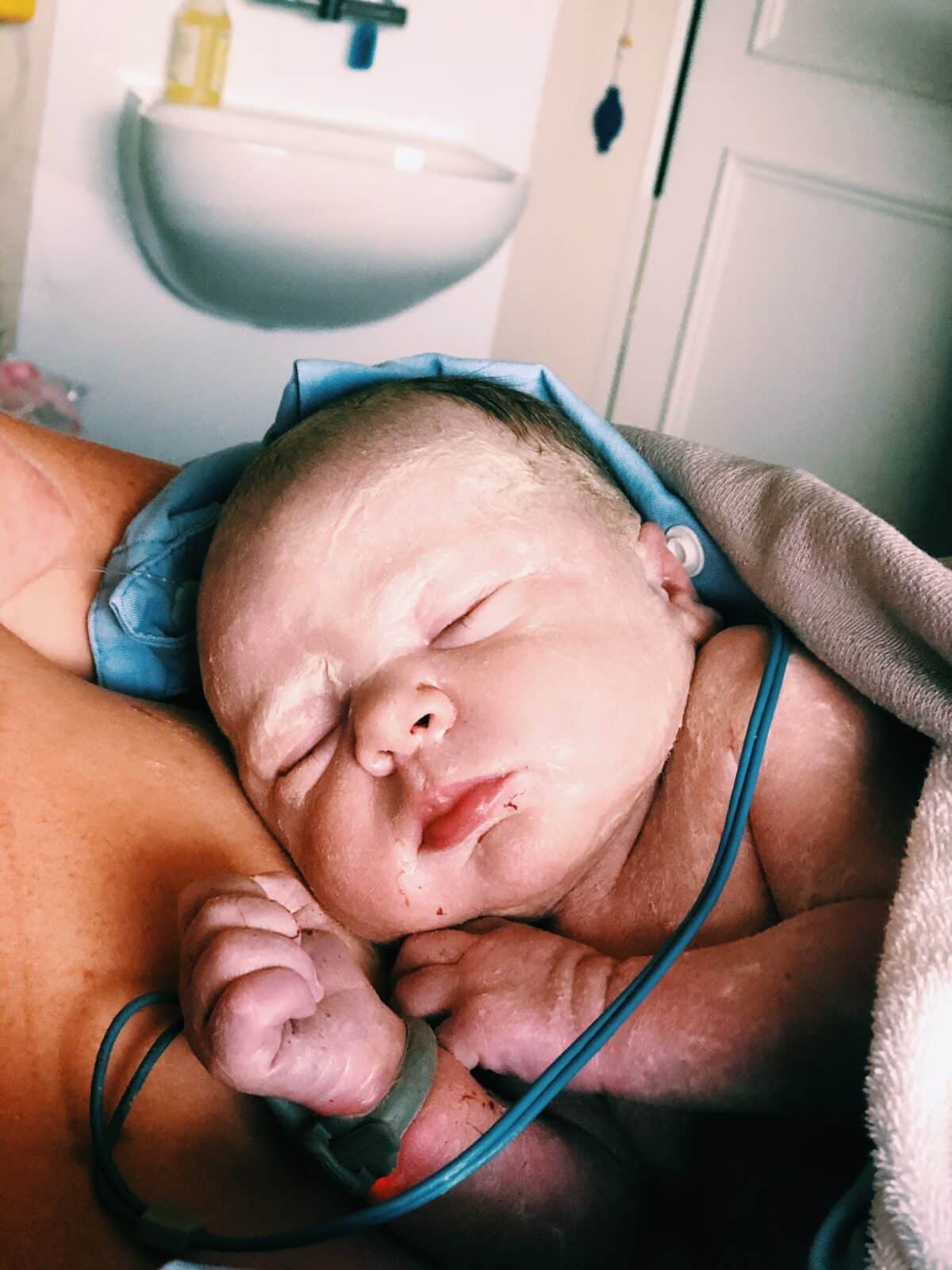
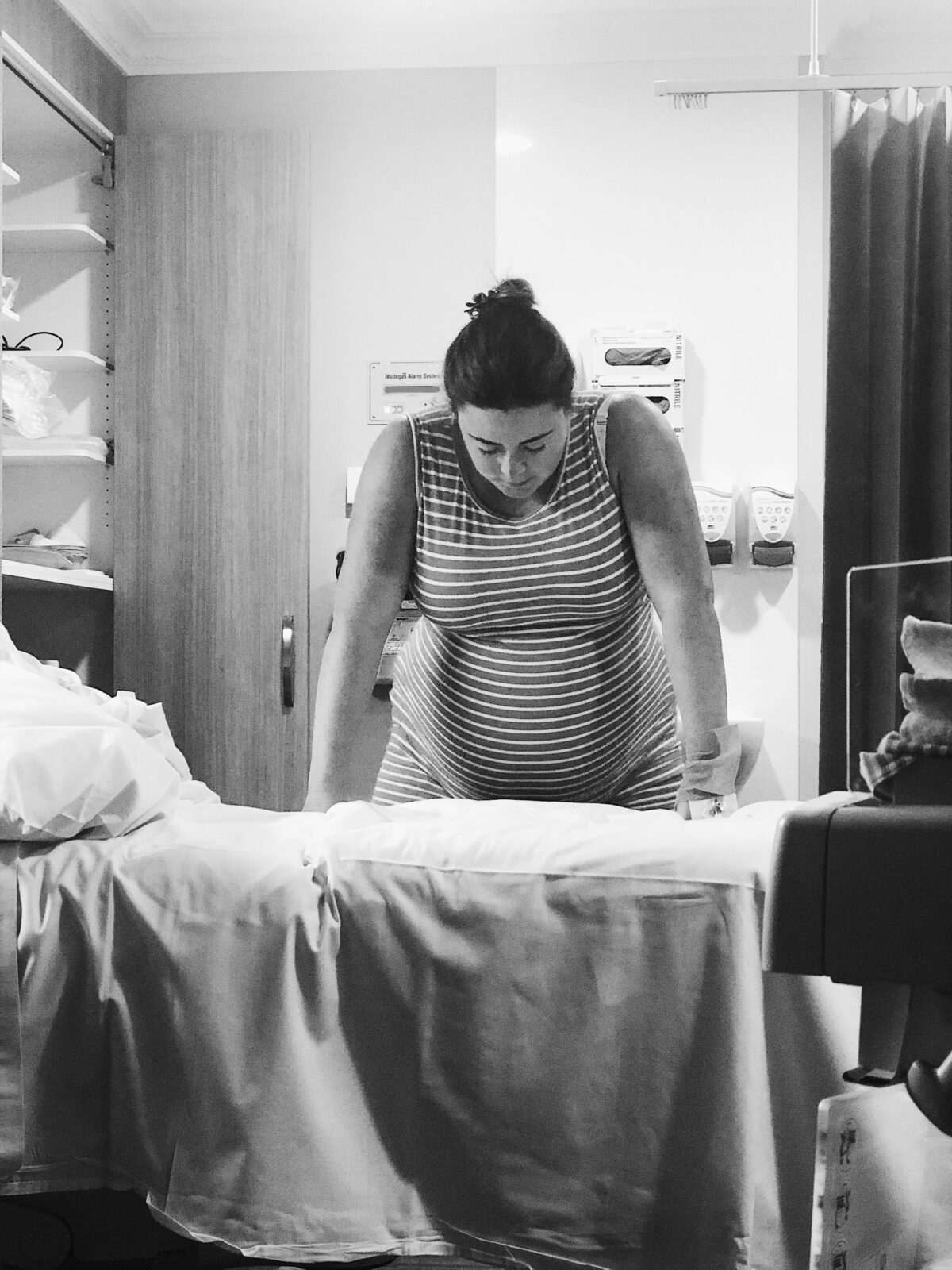
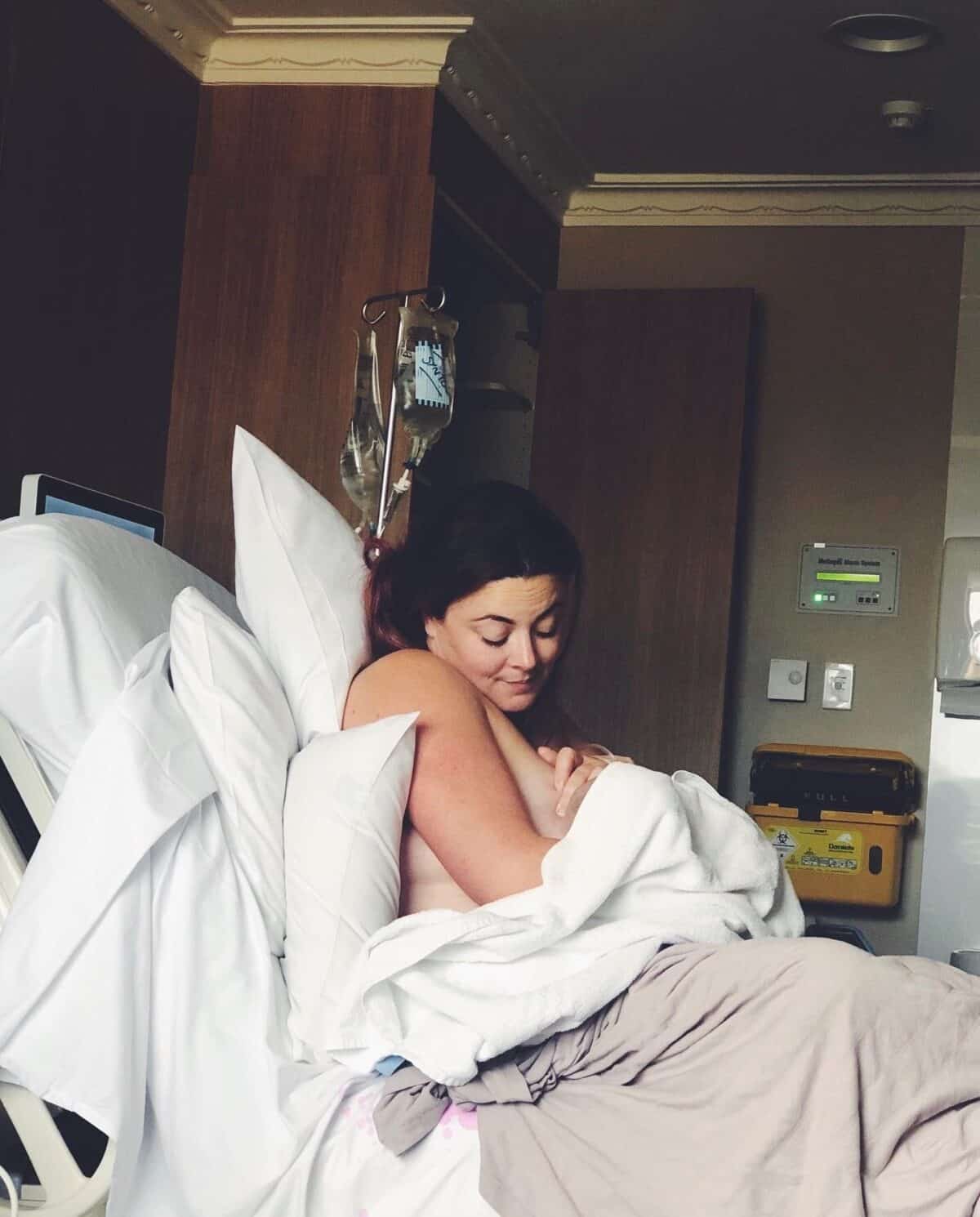
Topics Discussed
ADD, Antenatal anxiety, Antenatal depression, Breastfeeding, Covid-19, Induction, Miscarriage, Natural birth, Psychologist
Episode Sponsor
Today’s episode is brought to you by ErgoPouch. To herald in winter dreaming this season, ergoPouch Australia are today releasing a BRAND NEW winter collection online and in stores, called ‘Sage’. The new ‘Sage’ print is an earthy soft green adorned with the sweetest little leaf motif, perfect as a gender-neutral colour for a baby on the way, a newborn gift or a hand- me-down for future siblings.
Categories
Related Products
-
Birth Meditations
$49.00Narrated by Sophie Walker, these soothing and informative meditations help you feel supported and confident around birth.
Join the conversation
Sign up to get the latest updates, freebies, podcast releases straight into your inbox
@AustralianBirthStories
Follow along with us
@AustralianBirthStories
Follow along with us
@AustralianBirthStories
Follow along with us
@AustralianBirthStories
Follow along with us
@AustralianBirthStories
Follow along with us
@AustralianBirthStories
Follow along with us
@AustralianBirthStories
Follow along with us
@AustralianBirthStories
Follow along with us
@AustralianBirthStories
Follow along with us
@AustralianBirthStories
Follow along with us
@AustralianBirthStories
Follow along with us
@AustralianBirthStories
Follow along with us
